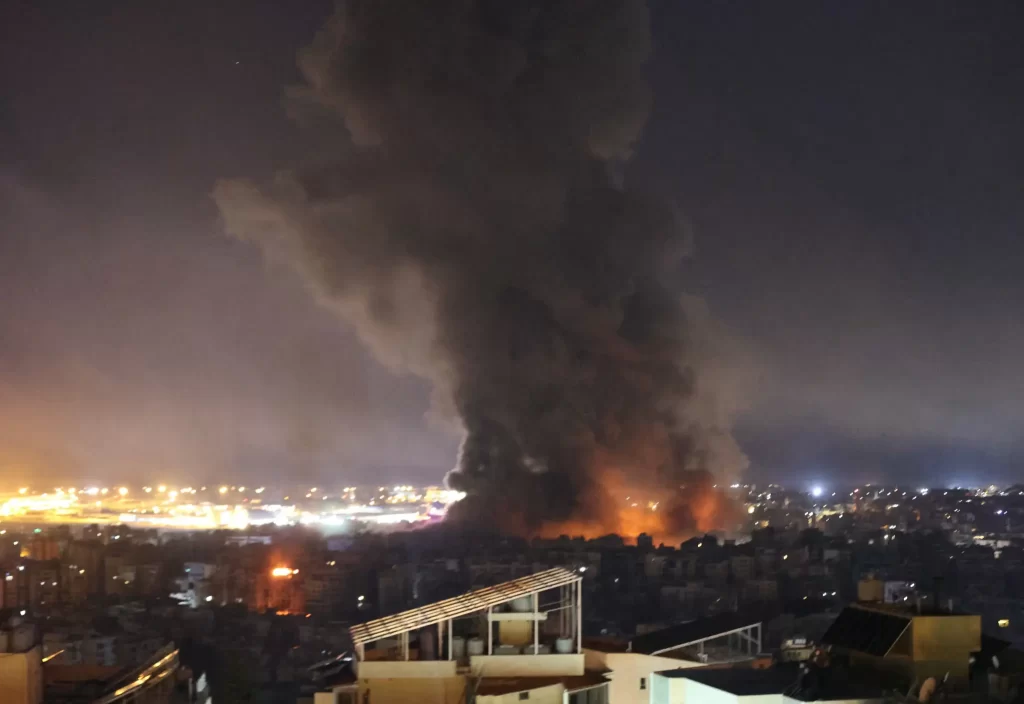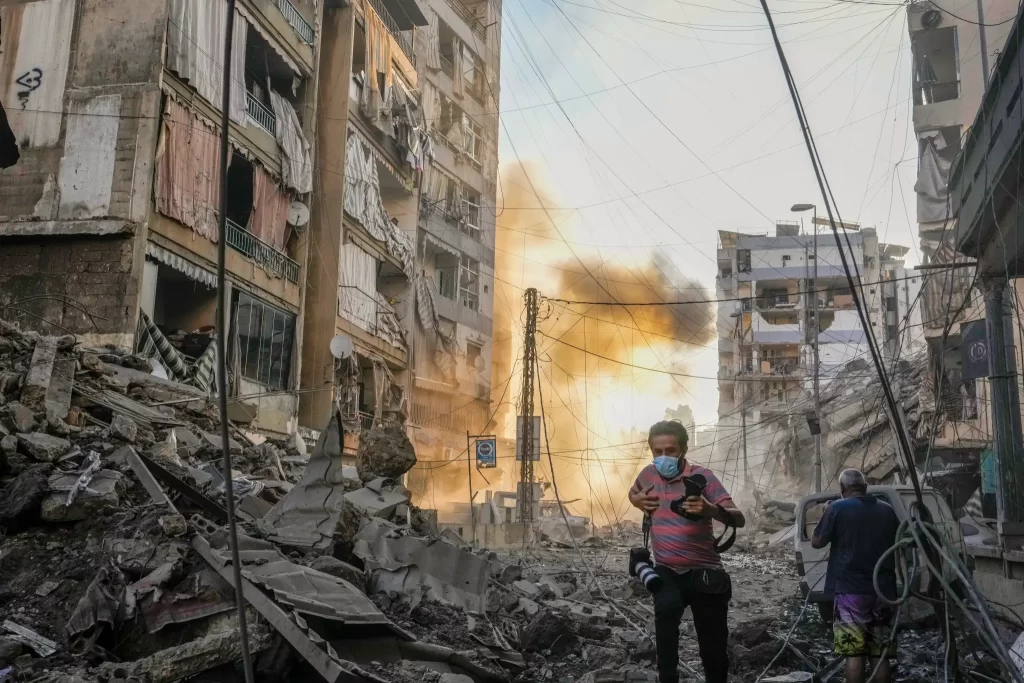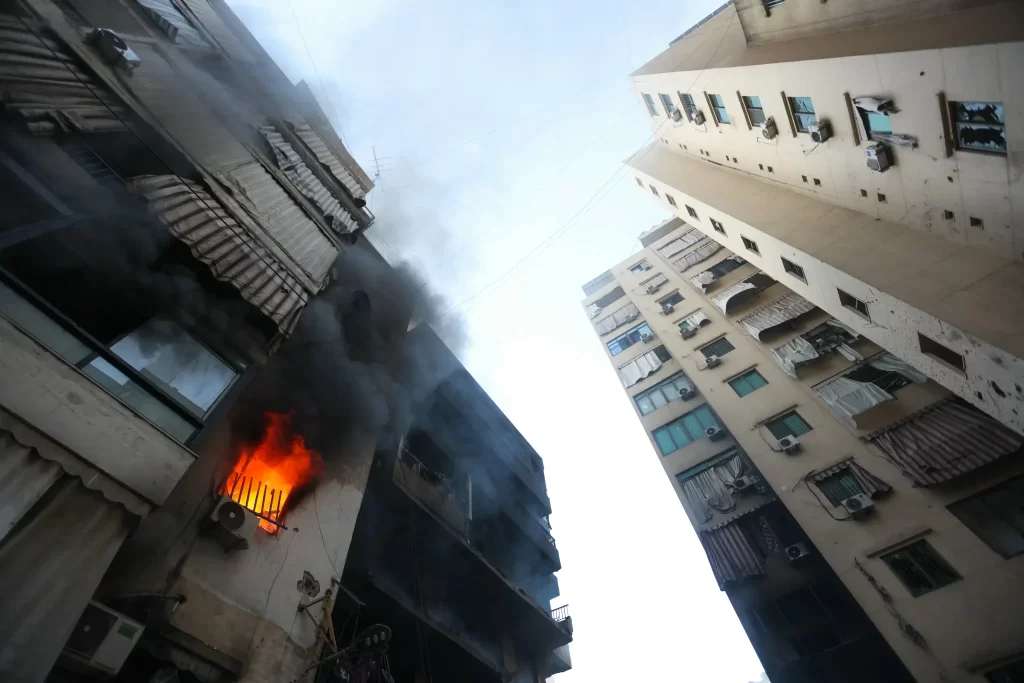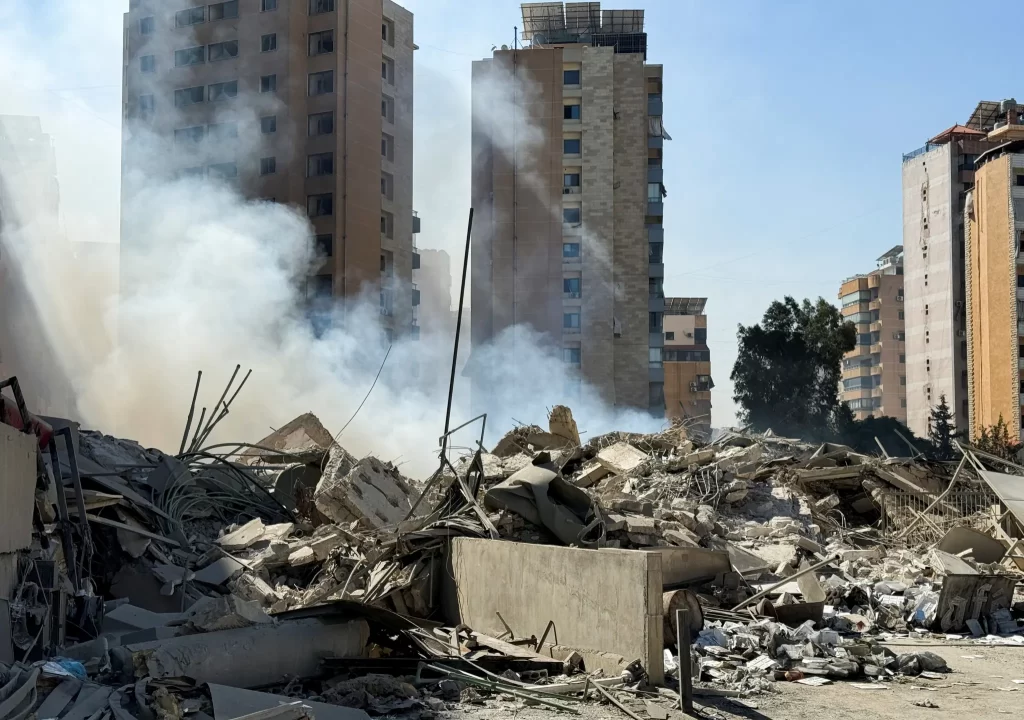Israel launched a series of intense airstrikes on Beirut’s southern suburbs and a major Lebanon-Syria border crossing Friday, marking a significant escalation in its conflict with Hezbollah and raising fears of a wider regional war.

The overnight blasts in Beirut’s southern suburbs, a Hezbollah stronghold, sent massive plumes of smoke and flames into the night sky, shaking buildings kilometers away in the Lebanese capital. The Israeli military said it targeted Hezbollah’s central intelligence headquarters around midnight.
“These strikes represent a dangerous escalation that could draw more regional players into the conflict,” said Middle East analyst Dr. Sarah Kaplan. “The targeting of civilian infrastructure like border crossings is particularly concerning.”

Lebanon’s state-run National News Agency reported more than 10 consecutive airstrikes in the area. The Israeli military claimed to have killed 100 Hezbollah fighters in the last 24 hours, though this could not be independently verified.
The strikes have taken a heavy toll on Lebanon, with some 1,400 Lebanese, including Hezbollah fighters and civilians, killed and about 1.2 million displaced since late September when Israel intensified its campaign against Hezbollah.
In a disturbing development, the Salah Ghandour Hospital in southern Lebanon reported being shelled Friday evening after receiving evacuation warnings. Nine medical staff members were injured, most seriously, according to a hospital statement.

The conflict has seen Hezbollah launch approximately 100 rockets into Israel on Friday alone, according to the Israeli military. Israel also claimed to have killed Mohammed Rashid Skafi, head of Hezbollah’s communications division, in a strike on Thursday.
The bombing of the Lebanon-Syria border area, about 50 kilometers east of Beirut, led to the closure of the busy Masnaa Border Crossing. Israel said it targeted the crossing because Hezbollah was using it to transport military equipment. The closure has stranded thousands of refugees fleeing the violence.

As the conflict intensifies, international concern is growing. Iranian Foreign Minister Abbas Araghchi, visiting Beirut on Friday, warned of a powerful retaliation if Israel attacks Iran directly. Meanwhile, in Tehran, Supreme Leader Ayatollah Ali Khamenei praised Iran’s recent missile strikes on Israel and indicated readiness for further action if needed.
The escalating violence threatens to draw more countries into a wider regional conflict, with the potential for devastating humanitarian consequences. As diplomatic efforts struggle to keep pace with the rapidly evolving situation, the international community watches with growing alarm.



